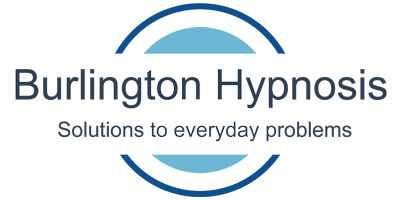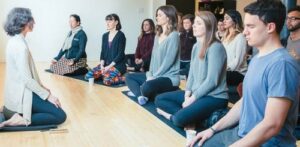
Coronavirus information
 What to do about upcoming medical appointments
What to do about upcoming medical appointments
While coronavirus is a new and immediate threat, it’s not the only one. It is still important to take care of any chronic medical problems to prevent them from getting worse. However, talk to your doctor to see if any upcoming appointments can be postponed, handled by Telehealth, or rescheduled. Many doctors are cancelling non-essential appointments. If you have an upcoming appointment, call your doctor’s office to confirm it is still scheduled.
Taking precautions against coronavirus for older adults
People with chronic medical problems, and those over age 65, are at increased risk of getting serious complications from the coronavirus. There is currently no vaccine to prevent coronavirus disease. Taking preventive actions is the best way to avoid contracting the virus.
Preventive measures include:
- Stay home as much as possible
- Avoid unnecessary contact with other people, don’t shake hands for example
- Avoid crowds, especially in poorly ventilated spaces
- Wash your hands often with soap and water for at least 20 seconds (use alcohol-based hand sanitizer w/ at least 60% alcohol if soap and water are not available)
- Avoid touching your eyes, nose and mouth
- Cover your cough or sneeze with a tissue
The importance of washing your hands
Handwashing is one of the easiest ways you can help prevent illness. It is especially important to wash your hands:
- Before, during and after preparing food
- Before and after caring for someone who is sick
- After using the bathroom
- After blowing your nose, coughing, or sneezing
- After touching an animal, animal feed, or animal waste
Remember that surfaces, including bathroom fixtures such as toilet handles and sink faucets, can also transmit infection.
Are you washing your hands correctly? Follow these 5 steps for the most effective hand washing technique to prevent the spread of germs.
 5 steps to washing your hands correctly
5 steps to washing your hands correctly
- Wet your hands with clean running water, turn off the water and apply soap
- Rub your hands together with the soap including the backs of your hands, between your fingers, and under your nails.
- Scrub your hands for at least 20 seconds
- Rinse your hands well under clean running water
- Dry your hands with a clean towel or air dry them
How is it transmitted?
Coronavirus is primarily transmitted by coughing and sneezing by a person infected by the coronavirus. Surfaces touched by someone with the virus may potentially be infected. This is why it is important to wash your hands, use hand sanitizer, and avoid touching your face. In addition, it’s a good idea to avoid shaking hands and minimize your contact with public use surfaces such as lifting the gas pump handle with a paper towel or using your knuckle instead of your finger to turn of light switches.
Is it necessary to wear a facemask?
The Centers for Disease Control and Prevention (CDC) does not recommend people who are well wear a facemask to protect themselves against coronavirus. The use of facemasks is recommended for health workers taking care of people in close settings or people who show symptoms of coronavirus to help prevent the spread of disease.
Is it ok to travel?
The CDC recommends avoiding nonessential travel. If you need to travel take basic prevention precautions listed above.
If I feel sick, how do I tell if it’s coronavirus or a different infection?
Coronavirus is related to common cold viruses. Symptoms are sore throat, cough, and fever. Some patients can have vomiting. You cannot tell the difference between coronavirus19 and other, more common viruses based on symptoms. This strain of coronavirus may be more virulent (causes a more severe illness) than most cold viruses.
Coronavirus symptoms may appear 2-14 days after exposure. Call your doctor if you develop symptoms and have been in close contact with a person known to have coronavirus or if you recently traveled from an area with widespread cases of coronavirus. Please don’t just walk in to your doctor’s office; they need to prepare for your arrival.
Prolonged vomiting, diarrhea, muscle aches, and joint pains are not prominent features of coronavirus infection. If you have those symptoms in addition to cold symptoms, it’s more likely that you have influenza, or “the flu”. While it is recommended that you stay home if you have cold symptoms during this pandemic, you should call your doctor if you get symptoms that suggest the flu. Adults over age 65 or with other medical problems are at increased risk of complications from the flu. There are medications that reduce the severity of the flu if taken early enough. So you should call your doctor within a day of flu symptoms to see if it would be appropriate for you to get a prescription for antiviral medications.
 How to prepare
How to prepare
It’s important to take precautions in advance in case you are required to stay in your home for an extended period of time. General emergency preparedness includes:
- Have a supply of food staples, bottled water, and household supplies like laundry detergent and bathroom items
- Make sure you have at least a 30-day supply of your prescription medications and other health supplies on hand, such as pain relievers, stomach remedies, cough and cold medicines, fluids with electrolytes and vitamins
For More Information
We take the safety and well-being of our community, members, and employees very seriously. Given the coronavirus situation is changing daily, we request that you do not visit our office in person.
For the latest up-to-date information on the coronavirus, please visit the CDC website at cdc.gov/covid19.


 Hypnosis and meditation are both trance states that result in similar brain wave patterns. Hypnosis uses the guidance of a therapist, whereas meditation is usually done independently.
Hypnosis and meditation are both trance states that result in similar brain wave patterns. Hypnosis uses the guidance of a therapist, whereas meditation is usually done independently. they understand what is spoken to them, and b) they consent to the process.
they understand what is spoken to them, and b) they consent to the process. Mindfulness is the moment to moment practice through the day that helps to maintain awareness of being present with all that occurs, good or bad, without judgement. This awareness is empowering and allows one to slow down and live one’s life fully, not just watch it speeding by.
Mindfulness is the moment to moment practice through the day that helps to maintain awareness of being present with all that occurs, good or bad, without judgement. This awareness is empowering and allows one to slow down and live one’s life fully, not just watch it speeding by.







